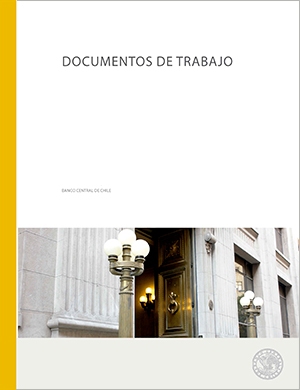Working Papers Nº 561: Estimating Models for Monetary Policy Analysis in Emerging Countries
Publications
Working Papers Nº 561: Estimating Models for Monetary Policy Analysis in Emerging Countries
Autor: Javier Garcia-Cicco
Description
We estimate a DSGE model of an emerging country containing many frictions that, as has been recently argued, impose non-trivial constraints for monetary-policy design in these economies. In particular, our framework features a sectoral decomposition of the productive sector, the use of intermediate inputs, imperfect pass-through, endogenous premium to finance capital accumulation, balance sheet effects due to liability dollarization, currency substitution, price and wage stickiness, and dynamics driven by eleven shocks. We use a Bayesian approach to Mexican data to address three main questions: i) can the model satisfactorily fit the data? Our answer is generally yes, with some caveats; ii) are the estimated parameters similar to those usually calibrated in policy-related studies? The answer is negative, particularly for those describing financial frictions, price stickiness and money demand. Finally, which of the emerging-markets’ frictions are more relevant in fitting the data? We find that including intermediate inputs is most important, while currency substitution does not seem to play a major role. Moreover, financial frictions and liability dollarization are also relevant.
Working Papers Nº 561: Estimating Models for Monetary Policy Analysis in Emerging Countries
Boxes and graphics

